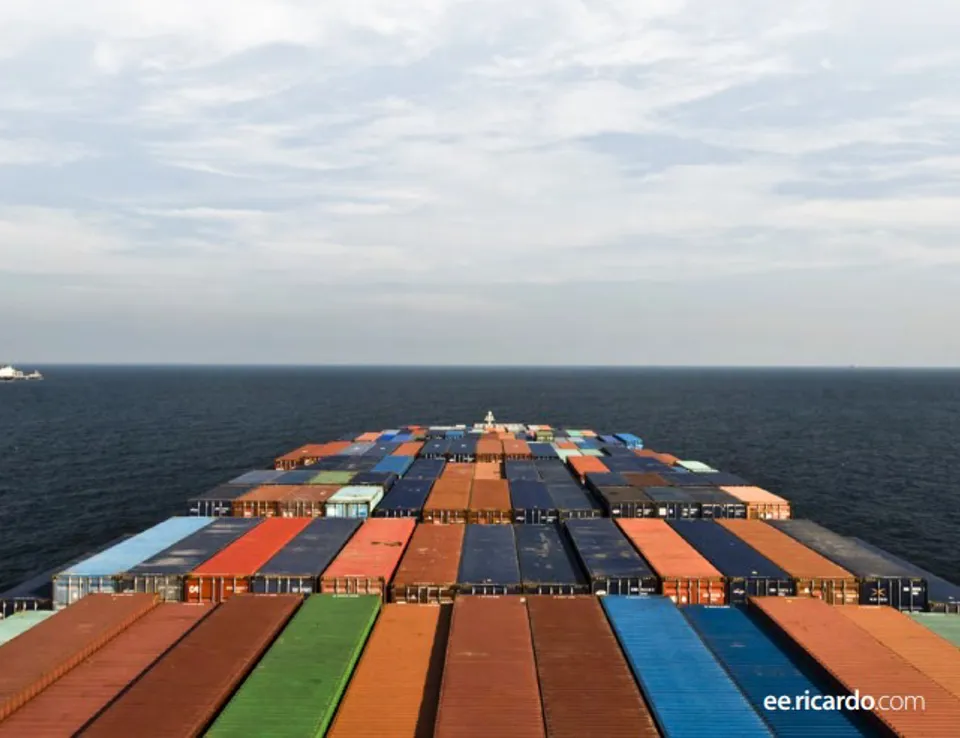Supporting the International Maritime Organization’s decarbonisation agenda
UPDATE
Download Tim Scarbrough's key insights on decarbonisation for the maritime sector following his attendance at the International Maritime Organization’s (IMO) Intersessional Working Group on the Reduction of GHG Emissions from Ships (ISWG-GHG) as mentioned below.
Ricardo’s Director of Maritime, Tim Scarbrough, will this week be participating in the International Maritime Organization’s (IMO) Intersessional Working Group on the Reduction of GHG Emissions from Ships (ISWG-GHG). Tim has been attending the IMO sessions for the last few years as an expert consultant, including as lead author of the Ricardo study for the IMO on the readiness and availability of low- and zero-carbon ship technology and marine fuels.
In July last year, the Member States of the IMO adopted the 2023 IMO Strategy on Reduction of GHG Emissions from Ships, with enhanced targets to tackle GHG emissions, the Ricardo-led study provided supporting evidence. The strategy includes the ambition to reach net-zero GHG emissions from international shipping by, or around, 2050, a commitment to ensure an uptake of alternative zero and near-zero GHG fuels by 2030, as well as indicative check-points for 2030 and 2040.
The primary topic on the agenda is hearing and debating the various proposals put forward for policy measures to decarbonise the sector, as well as updates on the ongoing impact assessment of the measures. Discussions will also take place on the further development of the IMO’s GHG life cycle assessment framework and proposals related to the onboard capture of CO2 emissions as a technology to reduce GHG emissions.
“I’m delighted to be participating in this important meeting to accelerate the maritime sector’s progress towards net zero and ensure this anticipates and minimises wider environmental impacts of fuels," said Tim.
"Together with my colleague Matt Moss, we'll present Ricardo’s latest work for the IMO on ensuring the sustainability of the fuels needed for the decarbonisation transition. With much negotiation still to be done to agree the decarbonisation policies, particularly the economic measures, I don’t expect it to be plain sailing. But, through sector collaboration at meetings such as this, we can develop consensus on the way forward and break through barriers to decarbonisation.”
Ricardo works with both ports and shipping companies to accelerate their decarbonisation journey. Our experts support across the value chain including interpreting the complex policy landscape, gathering evidence and developing strategies, techno-economic analysis, action plans and implementation support as well as monitoring and sustainability reporting. Our breadth of expertise and interdisciplinary skill ensures our plans, insights and support are implementable and set your organisation up for long term success.









